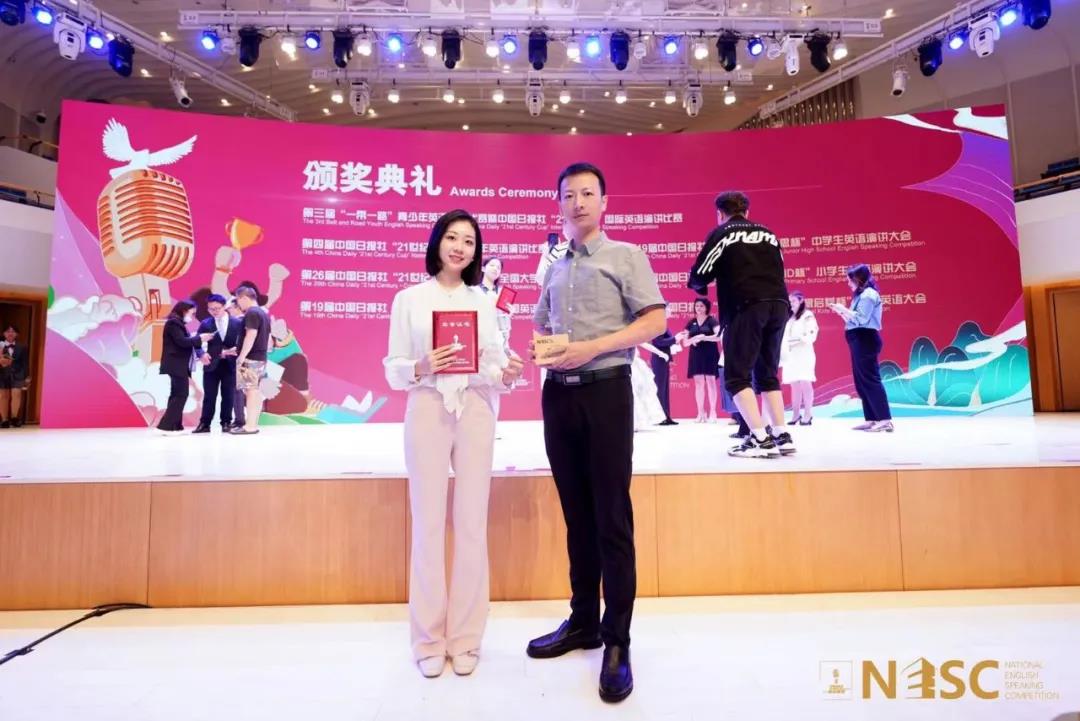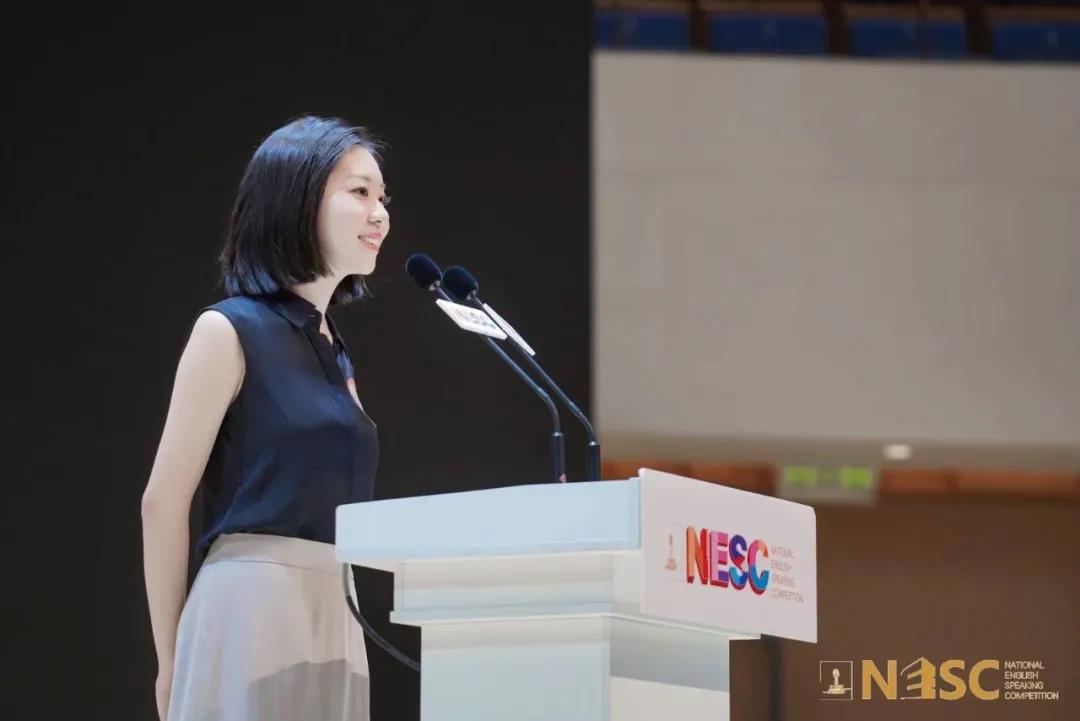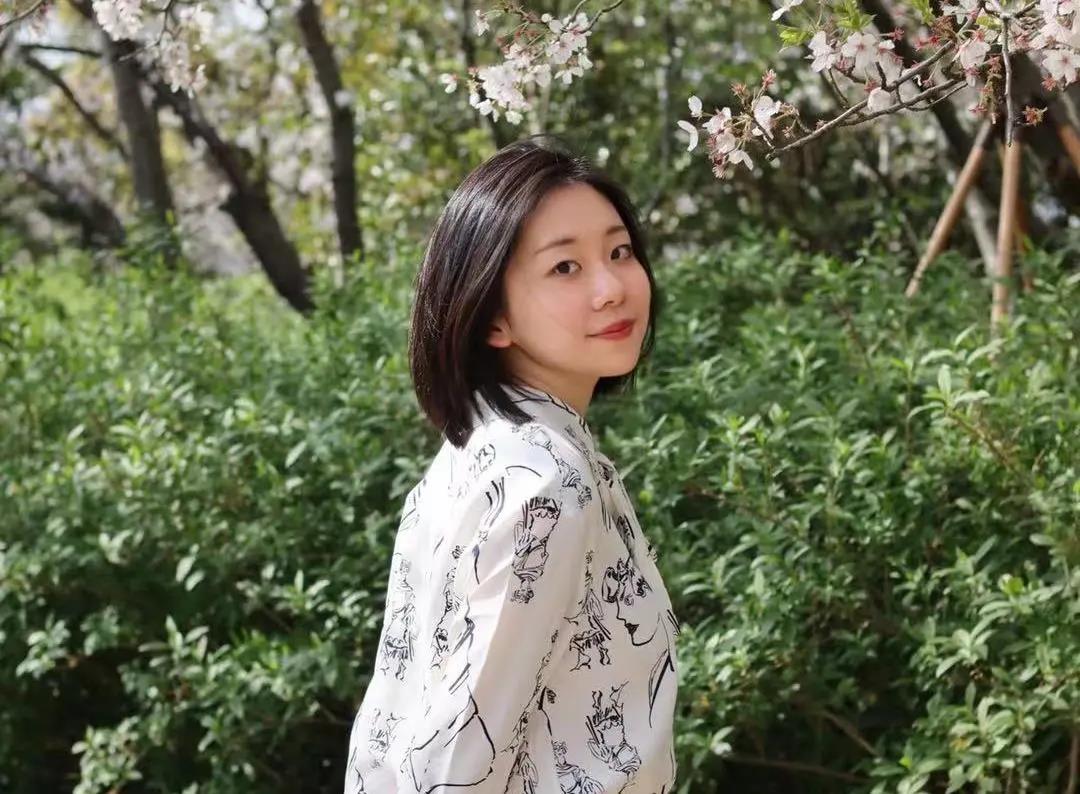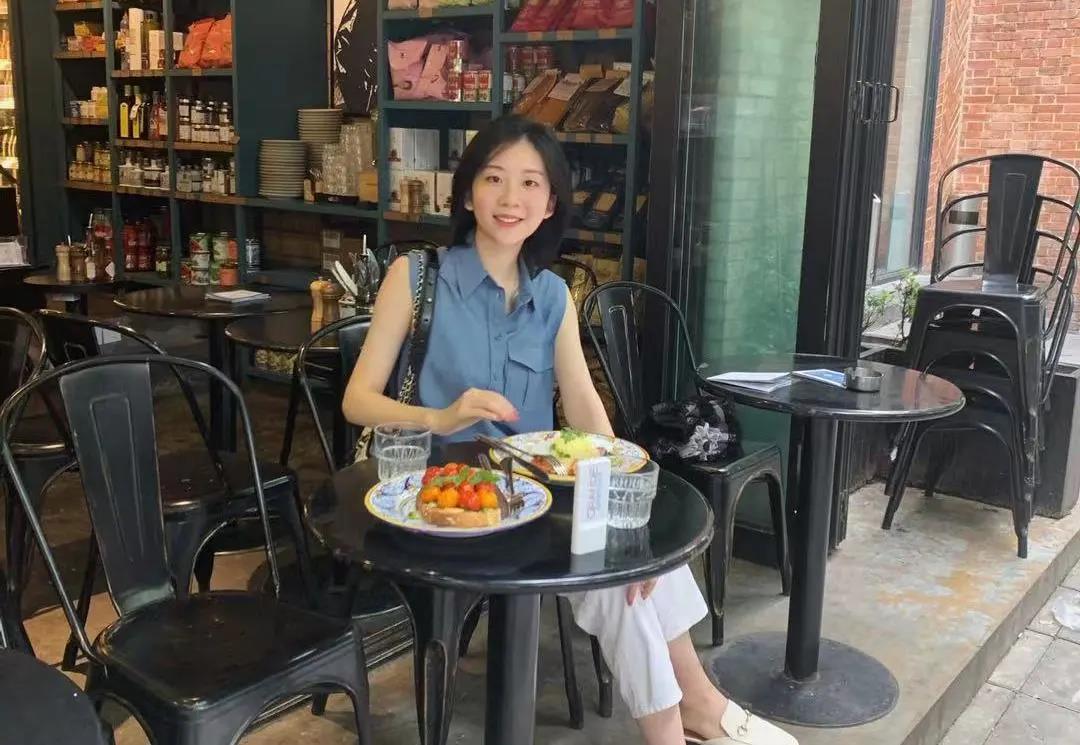作为一名新闻系的学生,传播中国声音、讲好中国故事一直是罗颖的理想。
怀揣着这样的理想,罗颖一步步过关斩将,在中国日报社“21世纪杯”全国英语演讲比赛总决赛上,从全国各高校的佼佼者中脱颖而出,最终获得大学组季军。
"Being afraid to fail means you’ll be afraid to try. Playing it safe will get you nowhere."
罗颖说,她希望大家也能像她一样,勇敢地实现自己理想中的模样。
一起来看看她的故事吧!

跳出框架,引发共鸣
在看到半决赛的主题 Protecting the blue planet 时,罗颖同学最初有两个想法。其一是和大多数人一样,环境保护;第二是把blue解读为“忧郁的、悲观的”,或许阐述现代人的一些情绪压力。
但是在思考这些事情背后真正的原因时,她找到了自己真正想说的主题:正是因为现代生活中“速度的绝对统治”,才导致人们不计后果地破坏环境,以及压力、焦虑情绪的产生,所以她将主题定为追求快与慢的平衡。
在撰写演讲稿的过程中,罗颖参考了关于外卖员为了追求“速度”而屡屡出交通事故的新闻稿件,将其作为演讲稿的开头,希望能让更多人了解他们的处境,而不是将他们用自身安全换来的速度视为理所当然。
对于总决赛的题目 The power of ideals,她选择了她一直想表达的主题:如何讲好中国故事。作为一名新闻系的学生,传播中国声音一直是她的理想。在她眼中,中国故事的背后是国家软实力与人文关怀魅力的体现。
在演讲稿的结尾,她提及人们往往在生命结束时,后悔没有将时间用于实现自己的理想上,希望引发更多人的共鸣和激起人们继续前进的动力。

心态阳光 满载而归
很多选手在初高中阶段,或者更小的时候就有很多上台演讲、主持的经历,她坦承,在这方面她的经验较少。或许是想让自己更自信、勇敢一些,她才选择在大学阶段参加演讲比赛。
在大赛中她首先体验到了充实感。由于抽签安排的顺序是半决赛的第二日,紧接着就举行总决赛,她坦承,对她的体力诚然是一种考验。
其次她也体会到了满足感。紧张、焦虑的情绪在赛前、赛时、赛后都有,但站在台上的那一刻,她感觉到了满足并感谢21世纪杯的舞台。
最后她还收获了幸福感。在准备室里她遇到了非常多有趣的参赛选手和志愿者们,大家一起聊天,缓解了很多赛前的紧张。在比赛之余选手们也都打成一片,结下了深厚的友谊,让她感到非常幸福。

学无止境 贵在得法
罗颖的英语口音的飞速提升,转折点是在初中。她的初中是上海的一所外国语学校,对于纠音的要求比较高。此外,每周一次的外教口语课,也帮助她更好地掌握一些地道的发音和表达。
上了大学之后,有了更多可以自己支配的时间,平时她比较喜欢看TED演讲和一些深夜脱口秀。平时积累的输入,很难在短时间内化作输出,她认为这个习惯需要坚持。这些视频有两方面的帮助:
一是他们自信的模样和自然的台风,这一点对于比赛选手来说有借鉴意义;二是他们的一些ideas,从中可以了解来自不同国家、不同文化的人都在关注些什么问题,这些能够帮助选手更深入地思考问题。

以赛促学 持续提升
罗颖在比赛的过程中得到了锻炼和提升,她分享了以下几个经验:
1、不要过分紧张,反而限制自己的发挥。如果把这个舞台看作是传递自己声音,说自己想说的内容的一次机会,就可以以一个比较良好的心态面对比赛。
2、演讲很重要的一点是吸引观众。无论是以理服人,还是以情动人,如果能够持续地吸引观众的注意力,那就是很成功的。
3、保持真实的自己。她在最开始接触演讲比赛时,也会想要模仿一些名人的风格,但最后多少有些弄巧成拙。每个人都有自己独特的特点,无论是语音语调,还是演讲风格,保持自己真实、自然的状态就是最好的。
4、多开口、多上台,这是提高演讲“质感”的最佳途径。在上台之后注重反馈,并及时改正一些自己的缺点,可以让自己持续地进步。
附:罗颖演讲原文
Telling stories
When I was little, I began my career as a kid journalist. Every Sunday morning, my dad and I took the subway together to get to newspaper office. Before walking into the door, my dad would crouch down, look straight into my eyes, and ask “ Sweetie, what story are you going to tell the world today?”
At that time, I didn’t know how to respond. So I kept searching answers by majoring in journalism. During class time, professors told us that the ideals of journalism is to unfold the truth, connect the world, and tell stories that are often neglected.
I put these ideals into practice last year. After spending two arduous months in a poverty-stricken county in Yunnan Province, interviewing local people, I wrote an article of their life stories, especially on how children there yearn for education.
After the release of it, I couldn’t help looking forward to how readers would react to the story and when schools would be set up. All of a sudden, my dad’s words came into my mind, and I started to think more about the meaning of telling stories.
It’s an ideal that helps journalists get through difficult times, create a sense of purpose, and take action to make a difference in this world. It reminds them of the fact that they’re truth seekers sticking to the standpoint of people. They’re translators putting complicated policies into simple words. They’re ambassadors bringing to the world our peace-loving traditions and concerns of a shared future, which it’s actually the ideal of every Chinese people.
In our fight against Coronavirus, we’ve lost count of moving stories recording the sacrifices of frontline hospitals, healthcare workers and legions of volunteers. It’s a story of heroism.
In our journey of poverty alleviation, we marvel at the transformation of impoverished villages. From winding mountain trails to highway tunnels, from fishing boats to cargo ferries, from agriculture to e-commerce. It’s a story of innovation and hope.
In our mission of building up a bridge between China and the rest of the world, we present an unbiased, multidimensional and panoramic view of China by stepping away from fear and division, and towards cooperation and rejuvenation. It’s a story of China, of Chinese people.
The stories we tell transcend culture, geography, race and religion. It empowers everyone to bring understanding and empathy to a world where we welcome the immigrant, the poor, and the forgotten.
In Bronnie Ware’s book “the top five regrets of the dying”, the one that tops the list is not having the courage to live a life true to oneself. We don’t wanna look back regretting not fulfilling our ideals. In the vision of making the world more open and equal, in the long march of realizing the Chinese dream, we give voice to people who desperately need to tell their stories and have their stories told. Because the stories we tell may be different, but the destiny we share is forever the same.


